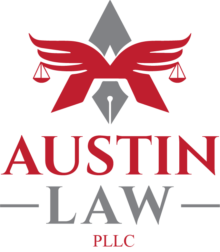Challenges Veterans Face During Transition to Civilian Life
As an attorney who proudly served in the United States Army, I understand the unique challenges that veterans face when transitioning back to civilian life. After sacrificing so much for our country, it is essential that we honor our veterans by offering them the support they need to thrive. In Texas, we are fortunate to have a robust network of legal services specifically designed to assist our brave men and women who have served in the armed forces.
Navigating the legal system can be daunting for anyone, but for veterans who may be dealing with a range of complex issues, it can be particularly overwhelming. From disability claims and benefits to family law matters, housing issues, and employment disputes, veterans often require specialized legal assistance tailored to their unique circumstances. Fortunately, Texas recognizes the importance of providing these services and has implemented various initiatives to support veterans in their legal endeavors.
Here is a list of ways to combat some of these challenges:
- Establish a Supportive Network: Build connections with other veterans, join veteran support groups, or engage with community organizations that cater to veterans’ needs. Having a support network can provide a sense of camaraderie, understanding, and valuable resources.
- Utilize Transition Assistance Programs: Take advantage of transition assistance programs offered by the military, such as the Transition Assistance Program (TAP). These programs provide valuable information, workshops, and resources to help veterans navigate the civilian job market, education opportunities, and other aspects of civilian life.
- Translate Military Skills: Translate your military skills and experiences into civilian terms that potential employers or educational institutions can understand. Highlight transferable skills, such as leadership, teamwork, problem-solving, and adaptability, on resumes and during interviews.
- Explore Education and Training Opportunities: Consider pursuing further education or training to enhance your qualifications and open up new career pathways. Utilize the educational benefits available to veterans, such as the Post-9/11 GI Bill, to pursue college degrees, vocational training, or certification programs.
- Seek Employment Assistance: Reach out to organizations that specialize in assisting veterans with job placement and career counseling. They can provide guidance, job search resources, interview preparation, and connect you with employers who value military experience.
- Address Mental Health Needs: Mental health challenges are common during the transition period. Seek support from mental health professionals who specialize in working with veterans. Organizations like the Department of Veterans Affairs (VA) and Vet Centers provide mental health services tailored to the unique experiences of veterans.
- Access Healthcare and Benefits: Familiarize yourself with the healthcare benefits available through the VA. Enroll in VA healthcare, which provides comprehensive medical services and specialized care for veterans. Ensure you understand your eligibility and access other benefits, such as disability compensation or vocational rehabilitation, if needed.
- Financial Planning and Stability: Take steps to secure your financial well-being. Create a budget, manage debt, and explore financial resources available to veterans, such as VA home loans or small business loans. Seek financial counseling services to better understand your options.
- Maintain a Healthy Lifestyle: Prioritize physical fitness, proper nutrition, and regular exercise to maintain overall well-being. Engage in activities that reduce stress, promote relaxation, and foster a positive mindset.
- Stay Resilient and Seek Help: Transitioning to civilian life can be challenging, but remember that resilience is key. Recognize when you need support and don’t hesitate to seek assistance from organizations, counselors, or friends and family. Reach out to veteran service organizations, crisis hotlines, or the VA if you’re facing significant challenges.
- To access resources on this topic, you can visit the VA’s website at www.va.gov and navigate to the “Benefits” or “Health Care” sections. There, you will find information on transition assistance programs, employment resources, mental health services, healthcare benefits, educational benefits, and more.
To ensure that veterans receive the benefits, services, and protections they deserve, Austin Law is here to assist with any support you need.
